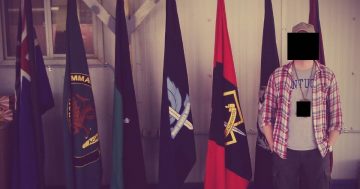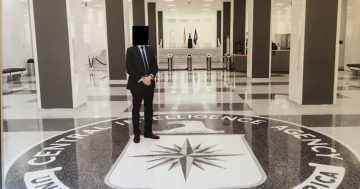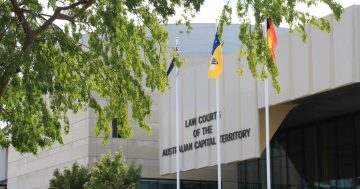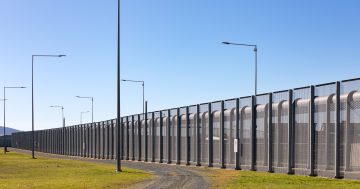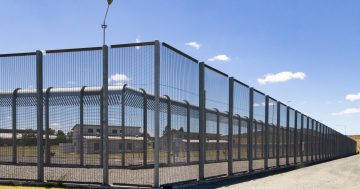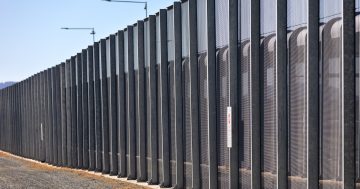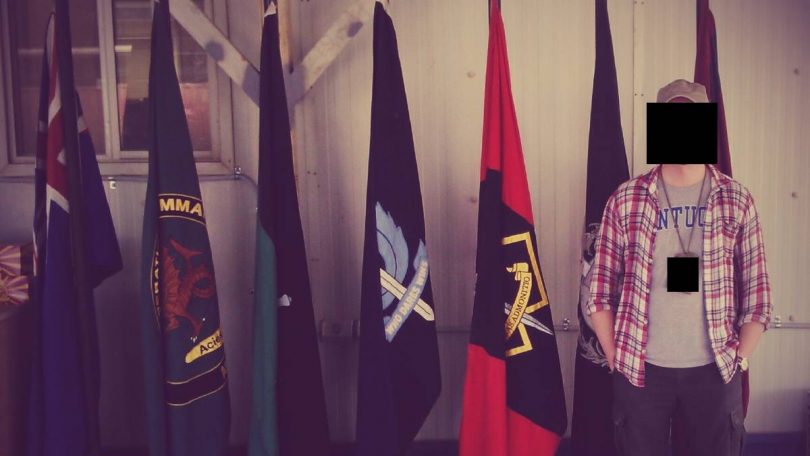
Witness J in Baghdad, Iraq. Photo: Supplied.
The man known as “Witness J” was tried, sentenced and jailed in total secrecy, during one of the most extraordinary episodes in Australia’s intelligence history. Now, he’s speaking about the impact of being incarcerated in Canberra’s Alexander Maconochie Centre alongside some of the ACT’s most notorious sex offenders.
“J” is a former Army officer and secret intelligence agency operative. He was convicted of mishandling classified information that potentially revealed the identities of agents.
We can’t know the details of the case: multiple suppression orders are in place and “J” has well-grounded fears that he might be targeted by foreign intelligence agencies. He spoke to Region Media via end-to-end encrypted messaging.

A redacted copy of Witness J’s actual diplomatic passport. Image: Supplied.
Freed from jail on conditions including regular psychological testing and an overseas travel ban without prior permission, he has major post-traumatic stress disorder symptoms and an overwhelming sense of anger about how he’s been treated.
And now, he’s written a book about it.
Here, There Are Dragons is a fascinating read for many reasons: a highly disciplined intelligence operative finds himself in a place where he has no control, among people who have breached every social convention and moral standard.
But for Canberra readers, the sheer familiarity will be strangest of all, for here are many names known to us from the news. There’s Cameron Tully, convicted of abusing multiple girls on his family’s farm. Arthur Hoyle, the ANU lecturer convicted of rape. Jeffrey Lee, the paedophile who murdered his stepfather.
“J” had been placed among them for his own protection. He’d been transported to the AMC in the dead of night, given a false name and held in solitary confinement while prison management worked out what to do with him.
Prisoners on discipline charges peered through the crack in his cell door, demanding to know what he was doing there. The secret agency for whom he’d worked didn’t reveal his whereabouts to his family as he apparently vanished for three weeks.
“J” says the AMC’s general manager Ian Ross, for whom he has great respect, made the best available choice when deciding to place him in the sex offenders wing. Rates of violence were lower there and sex offenders rarely discussed their crimes. Nobody knew what the charges were against him, including the prison staff (and, as it transpired, Justice Minister Shane Rattenbury who had no idea he was on the premises).
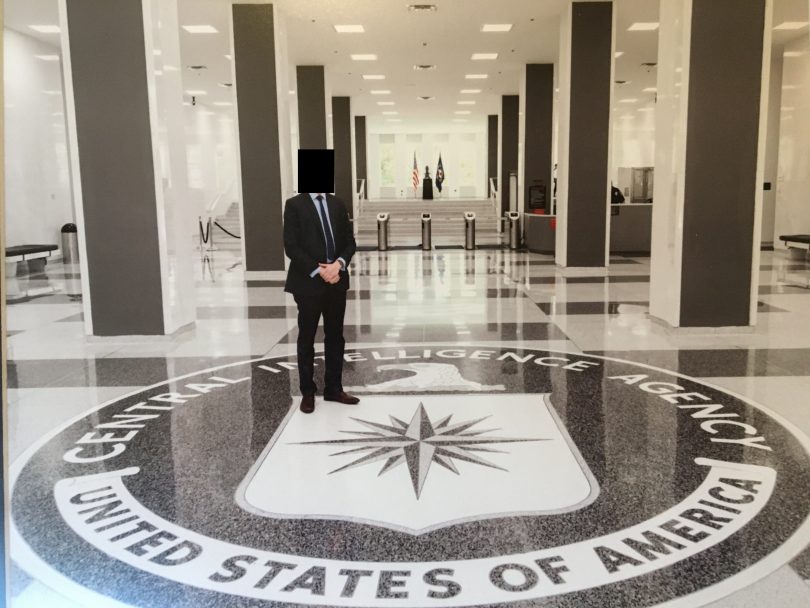
“Witness J” at CIA headquarters, Langley, Virginia. Photo: Supplied.
The case was only revealed when “J” brought a civil action against the jail last year after police raided his cell, looking for a draft of the book and the subsequent case was not suppressed.
“The lack of access to family specifically was gross,” he told Region Media. “The way the whole incarceration was conducted was a fundamental breach of my human rights and the fact that I was jailed was a travesty of justice.”
While it’s standard practice in high-level security matters to vet legal representation, his lawyer had to be approved by the general counsel of the agency who had brought the action against him.
“I understand the security thinking, but it was weaponised against me. I am still being denied and delayed access to representation and justice now,” he says.
In the meantime, he was inside among people whose crimes were repulsive, but with whom he had to live. “It was a reversal of roles where I met the people first as human beings before I knew what they had done. I was shocked when I got out and read the details,” he says.
Cameron Tully, for example, presented as a father of five who maintained his innocence. His family visited twice each week and “J” says Tully worked with prison officers and was a force for good in the wing. They became friends of a sort in that strange inside world.
“But Tully had been sentenced as an insidious long-term paedophile,” he says, adding that he fully believes the courts got it right regarding him and others like Arthur Hoyle, who also strenuously maintained his innocence.
The national apology to victims of institutionalised sexual abuse occurred while “J” was incarcerated and he found it shocking that while the mood inside the wing was subdued, the day essentially passed without notice amid the likes of paedophile priest John Aitchison. That spoke to him about the denial many perpetrators lived in regarding the reality of their crimes.
His feelings about the AMC are mixed. He met impressively dedicated prison officers but says there were also genuinely rotten and corrupt guards. He was able to purchase two Nokia phones for over a thousand dollars each and says contraband, including drugs and tattooing implements, proliferated in the jail.
“Phones have a bit more bulk to them, it’s easy to detect them being used. When you add wifi dongles and spare batteries, the lack of them being identified means there must be a wider involvement with corrections staff,” he says.

Witmess “J’s” book will be self-published. Photo: Supplied.
The book, written in his prison cell, was an important step for maintaining his fragile mental health. It’s self-published after major houses expressed anxiety about how it would be marketed, and he cannot make money from its sale due to proceeds of crime laws. Any profits will go to a mental health charity, but the urge to speak, to find his voice again is the strongest motivation.
That’s difficult because the security classification around his case remains at EC1, the highest possible level in Australia and among other “Five Eyes” nations. That means anyone dealing with the matter must have top-secret clearance and briefing, accessing the information via a time-limited code word and on a strictly needs to know basis.
That makes “J” angry too.
“I do believe an injustice has been served upon me, not just that I was remanded, but also the oppression, the arrogant over-classification of my situation,” he says.
“As an Australian citizen who has worked in military intelligence and sat in rooms with ISIL fighters and the Taliban, there is real evil in this world. I know what it means to have intelligence agencies do good work. I’m not a whistleblower.
“But even with that perspective, we are seeing a slide into authoritarianism. Look at Witness K, Bernard Collaery, Annika Smethurst and the ABC journalists. We are seeing an increase in secrecy as a way to prevent embarrassment or failures.
“The twilight is getting slowly darker at a rate we don’t perceive. That’s the scary thing.”
Here, There are Dragons, by Witness J, is self-published on June 1 on lulu.com and Amazon.












